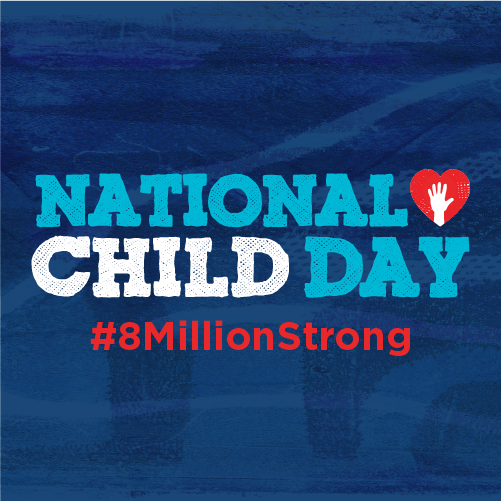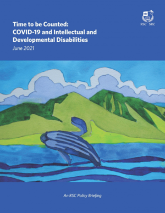by Keiko Shikako, Roberta Cardoso, and Miriam Gonzalez
In honour of National Child Day on November 20, CHILD-BRIGHT is celebrating the 30th anniversary of Canada’s ratification of the Convention of the Rights of the Child (CRC) and digging deeper into the CRC and its importance for children with disabilities, including brain-based developmental disabilities.
National Child Day has been celebrated on November 20 in Canada since 1993 to commemorate the United Nation’s (UN) adoption of the CRC four years earlier. That means the document is 32 years old—no longer a “child” but a fully fledged “adult”! The CRC recognizes “the inherent dignity and of the equal and inalienable rights of all members of the human family is the foundation of freedom, justice and peace in the world”. By ratifying the convention, Canada made a commitment to treat children with dignity and respect and ensure all their rights are respected. The convention makes clear that children require special protections to have these rights be guaranteed. National Child Day reminds us that children are also human beings worth celebrating!
How does the Convention of the Rights of the Child apply to children with disabilities?
Children with disabilities are part of two seldom-heard groups: “children” and “persons with disabilities”. This means that children with disabilities are “doubly marginalized” and therefore in need of “double protection”. At the international human rights level, they are entitled to the rights that are afforded to children, which include the right to family, to play, to education that meets their needs, to health services that are designed for them, to participate in society as contributors in decisions that matter to them and in communities that are built for them. They also have rights that protect persons with disabilities, covered by Article 7 in the UN Convention on the Rights of Persons with Disabilities which is dedicated to children. They have the right to inclusive education, rehabilitation, and meaningful engagement in all aspects of society.
As a society, we have an obligation to apply these two conventions in daily life to protect children from abuse and neglect, create services like health and education, and structures like public spaces, transportation, buildings that meet their needs and support the full development of children with disabilities. It also means that we must give children opportunities to participate in society, articulate their own ideas and priorities, and give them opportunities to reach their full potential.
How does CHILD-BRIGHT work to uphold the Convention of the Rights of the Child?
Using family and child-focused approaches, CHILD-BRIGHT works to create novel interventions to optimize development, promote health outcomes, and deliver responsive and supportive services for children with brain-based developmental disabilities and their families. We collaborate and partner with other organizations that have a mission to improve and health and wellbeing of children and children with disabilities to put them front and centre in our activities and ensure their rights are upheld. In the past year, some of these activities have included:
Collaborating to identify priorities for children in Canada through the “We Can for Kids” initiative led by Children’s Healthcare Canada and UNICEF.
Partnering with the Canada Research Chair in Childhood Disabilities and Kids Brain Health Network to create a side event at the 13th United Nations Conference of the States Parties for the Convention on the Rights of Persons with Disabilities.
Facilitating the participation of youth from the CHILD-BRIGHT community at the UN CRC committee pre-session, to speak up on topics of importance for children with disabilities in the context of children’s rights.
Asking multiple members of the CHILD-BRIGHT community, including children and parents, to weigh in on the important issues for children in the Submission of Canadian Civil Society Organizations to the Committee on the Rights of Persons with Disabilities.
Supporting and training youth with disabilities to review grant applications and conduct research evidence reviews, such as a rapid review conducted with the SPOR Evidence Alliance on COVID-19 in children with brain-based developmental disabilities.
Contributing to the creation of a policy briefing report about the issues facing individuals with intellectual and developmental disabilities, including children, during the COVID-19 pandemic.
Participating in literature reviews and evaluating policies on mental health.
Listing online leisure activities for children with disabilities and their families through the Jooay App and studying how we can make online activities more accessible for children with disabilities.
Listing COVID-19 resources for Canadian youth with disabilities, their families & support teams on the CHILD-BRIGHT website.
Providing expert responses to questions from youth with disabilities and their families about COVID-19 through the MyCOVIDDisabilityQ campaign.
Conducting a survey to assess the impact of the pandemic on engagement of network members, including caregivers and youth with developmental disabilities, and identify recommendations that can be used to facilitate engagement during public health crises (to be published soon).
Speaking to families and youth with developmental disabilities about how they experienced the pandemic, what aspects of their daily lives were most impacted and what we could do to create better communities as we emerge from the pandemic into “the new normal”. These contributions were also presented in the Children First Canada “Raising Canada” report.
Given this difficult pandemic year, we believe it is especially important to celebrate children with disabilities on this National Child Day. Here are some of the ways we celebrate children with disabilities at CHILD-BRIGHT every day:
Learn more about how parent and youth can engage in the human rights conventions reporting and monitoring
Promoting greater awareness of their human rights and how they can be enacted
Identifying priorities based on their needs and creating programs, activities, and products to respond to them.
Creating opportunities for meaningful participation in research, civic, and community events that empower children and model for society the role that children can play.
Here are some ways you can celebrate children every day too:
Get informed: You can take a look at this easy-to-read document about the participation of persons with disabilities, including children with disabilities, in the implementation and monitoring of the convention, as well as this UNICEF explainer about children’s rights and human rights, and our infographic about how you can get engaged in the process.
Engage: We encourage researchers to familiarize themselves with our National Youth Advisory Panel’s 10 Tips for Engaging Youth in Research.
Promote awareness of children’s rights: UNICEF has compiled a list of resources for raising awareness about child rights. You can also consult the Child Friendly Cities Initiative’s strategies for advocacy and awareness-raising for more ideas.
Empower: Help empower kids in Canada with this blog post from Children First Canada.
What are you doing to mark this National Child Day? Let us know in the comments!





